With the transnational success of Operation Sindoor, reflecting on the crucial role by the personnel in the forces, Farahbell Giri Sahkhar recalls her father, Late D. General Singh Syiem’s service during the 1961, 1965 and 1972 wars.
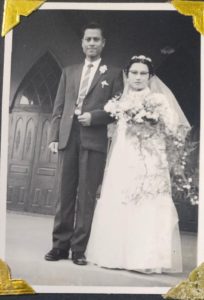 India has always had a strong fleet of Armed Forces, which has saved it from the invasion of other countries, because even after attaining its independence from the British. During turmoils which turn aggressive, the daring and gallant heroes of these Armed Forces have always contributed significantly to safeguarding the country. Even now, when Operation Sindoor (India’s measured and calibrated military exercise targeting Pakistan’s nine terror facilities has taken global precedence), not only was a methodical approach towards countering terrorism, but also acclaims the crucial role of the military in its facilitation, a look back at Late D. General Singh Syiem’s service at the army seems a timely tribute.
India has always had a strong fleet of Armed Forces, which has saved it from the invasion of other countries, because even after attaining its independence from the British. During turmoils which turn aggressive, the daring and gallant heroes of these Armed Forces have always contributed significantly to safeguarding the country. Even now, when Operation Sindoor (India’s measured and calibrated military exercise targeting Pakistan’s nine terror facilities has taken global precedence), not only was a methodical approach towards countering terrorism, but also acclaims the crucial role of the military in its facilitation, a look back at Late D. General Singh Syiem’s service at the army seems a timely tribute.
 As a son of the soil, remembering and paying tribute to his life and heroic deeds who had served in the Indian Air Force and fought for his country against the Chinese and Pakistan is a story that might be unknown to many young readers.
As a son of the soil, remembering and paying tribute to his life and heroic deeds who had served in the Indian Air Force and fought for his country against the Chinese and Pakistan is a story that might be unknown to many young readers.
The Late General was one of the veteran heroes who had served in the Indian Air Force for thirty years and due to his vigilance and dedication to the work had brought laurels to his life and family. Born at Mawlai Nongpdeng, Shillong in 1933, he had completed his matriculation from Mawkhar Christian Boys High School and his Intermediate Arts, as they called it in those days, from St. Anthony’s College. After this, he joined the Indian Air Force in 1954 as a Flight Sergeant or JCO as it is known 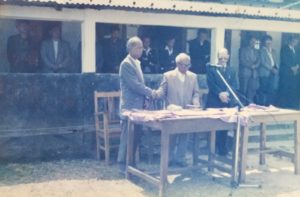 today. In 1965, he honourably got married to Late Icydoris Sahkhar, a resident of Howell Road, Laban, and later lived at New Kench’s Trace Road, Lumshatsngi, Shillong.
today. In 1965, he honourably got married to Late Icydoris Sahkhar, a resident of Howell Road, Laban, and later lived at New Kench’s Trace Road, Lumshatsngi, Shillong.
During his tenure in the Indian Air Force, the Late General played a crucial role in detecting and tracking the Chinese planes, which showcased his exceptional skills and vigilance. He took part in the Indo-Chinese War in 1962. He detected the Chinese planes while he was in the Eastern Air Command, which was in Shillong. His bravery was also seen as he 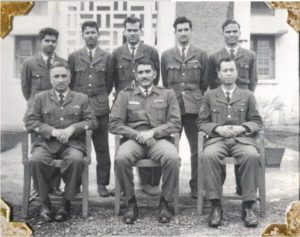 took part in the Indo-Pak War in 1966 and the Conflict in 1971. Here, he demonstrated exceptional bravery, strategic thinking and professionalism. The war, which led to the creation of Bangladesh, was a testament to the Indian armed forces’ courage and tactical brilliance.
took part in the Indo-Pak War in 1966 and the Conflict in 1971. Here, he demonstrated exceptional bravery, strategic thinking and professionalism. The war, which led to the creation of Bangladesh, was a testament to the Indian armed forces’ courage and tactical brilliance.
The Western Air Command’s Appreciation Certificate that he had received in 1975 is a testament to the Late General’s outstanding service and contributions during the Indo-Pak War and Conflict. The prestigious President’s appointment as a Warrant Officer, which he had received in 1980,marks a recognition which underscores his commitment to excellence 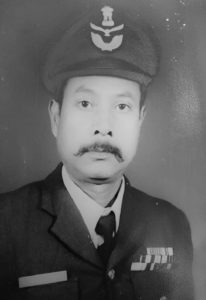 and his role as a respected leader in the Military. His expertise in surveillance and reconnaissance was instrumental in safeguarding national security and protecting the country’s interests.
and his role as a respected leader in the Military. His expertise in surveillance and reconnaissance was instrumental in safeguarding national security and protecting the country’s interests.
Translation of the above certificate:-
Certificate of Appreciation from Airforce, Commander -in -Chief
This is to state that Flight Sergeant Dharam General Singh (220031) served in the post as clerk/GD No.2 FBSU Air Force 1974-75 rendered commendable, conscientious, duty bound and efficient service and these remarkable qualities of yours are highly appreciated by me
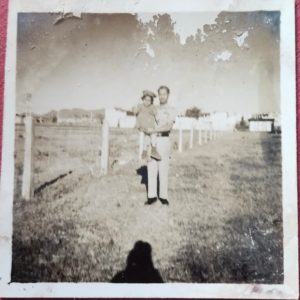 New Delhi 15th August 1975
New Delhi 15th August 1975
Air Marshall
Commanding Officer -in-Chief
Western Air Command.
Throughout his illustrious career, the Late General exhibited unwavering dedication, exceptional leadership, and a strong commitment to duty. His contributions to the Indian Air Force were marked by distinction and legacy as an inspiration to future generations of service men and women. His selfless service, patriotism, and dedication to duty will be remembered for years to come.
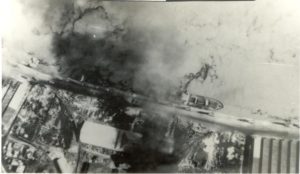 After the wars, he took voluntary retirement from the Indian Air Force as a Master Warrant Officer in 1984 and then went on to complete his tenure of service as a Security Officer in the Survey of India till his full retirement in 1993. As a Security Officer, he was polite and affable towards his juniors, guards and colleagues. All those he worked with, were fond of him because of his likeable qualities.
After the wars, he took voluntary retirement from the Indian Air Force as a Master Warrant Officer in 1984 and then went on to complete his tenure of service as a Security Officer in the Survey of India till his full retirement in 1993. As a Security Officer, he was polite and affable towards his juniors, guards and colleagues. All those he worked with, were fond of him because of his likeable qualities.
 After his retirement, he worked with the Laban Presbyterian Church on where he later became a Bible Man at Wahlingkhat for exactly one year. Not only was he dutiful towards his profession but was a religious one too. However, on March 8, 1998, he passed away in service after he suffered a sudden stroke.
After his retirement, he worked with the Laban Presbyterian Church on where he later became a Bible Man at Wahlingkhat for exactly one year. Not only was he dutiful towards his profession but was a religious one too. However, on March 8, 1998, he passed away in service after he suffered a sudden stroke.
His death brought a great loss to the Laban Presbyterian Church and especially to the people of Wahlingkhat, who, due to his polite and kind ways, had won the hearts of many families to Christianity.
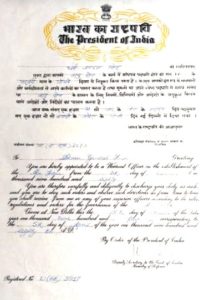 At an age where social media and boisterous talking makes a larger than life picture than the actual truth, many lives worthy of knowing are lived and gone in silence. One such is that of the Late General.
At an age where social media and boisterous talking makes a larger than life picture than the actual truth, many lives worthy of knowing are lived and gone in silence. One such is that of the Late General.
(The author is an Asst. Professor at Sankardev College)



